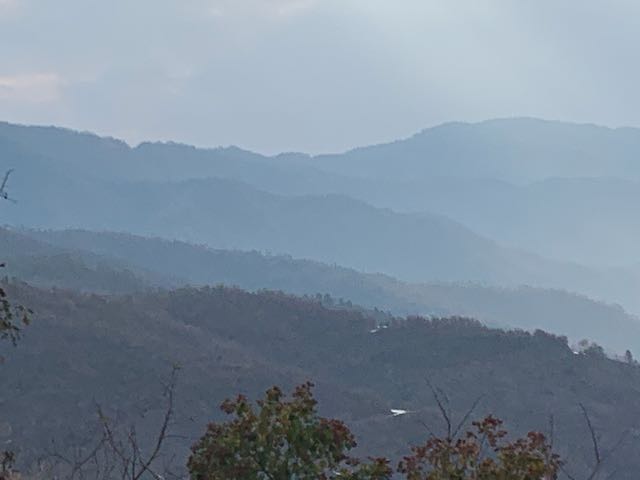Rajya Sabha must apply brakes on the controversial Forest Conservation Act (Amendment) Bill 2023
In light of the controversial statement in Parliament by Ministry of Tribal Affairs on Forest Conservation Act (Amendment) Bill, 2023, Rajya Sabha must apply brakes on the controversial law

Hon’ble MP (Rajya Sabha) Sri Aneel Prasad Hegde raised a critical question with regard to the amendment of the Forest Conservation Act, 1980 (hereinafter FCA), by way of the Forest Conservation (Amendment) Bill, 2023, (hereinafter FCA Bill) the question[1] being:
“Will the Minister of TRIBAL AFFAIRS be pleased to state:
(a) whether the Ministry of Environment, Forests and Climate Change has proposed in 2022, amendments to the Forest Conservation Act in consonance with Sec 11 of the Forest Rights Act 2006 read with GOI (Allocation of Business) Rules, 1961 and as recommended by the Parliamentary Committee; and
(b) if so, provide details of compliance?”
Tabling a response to this question, Hon’ble Minister of State for Tribal Affairs, Sri. Bishweswar Tudu, responded on 26th July 2023:
“(a) to (b): As per the information received from Ministry of Environment, Forest & Climate Change (MoEFCC), amendments have been proposed to the Forest (Conservation) Act, 1980 as per the Government of India (Allocation of Business) Rules, 1961.
The MoEFCC has further informed that proposed amendments does not interfere with any provisions of the Scheduled Tribes and Other Traditional Forest Dwellers (Recognition of Forest Rights) Act, 2006 (FRA).”
The Government of India (Allocation of Business) Rules, 1961 (hereinafter Allocation of Business Rules) states that the Ministry of Tribal Affairs (MOTA for short)[2] is in charge of “(a)ll matters including legislation relating to the rights of the forest dwelling Schedule Tribes on forest lands”. This insertion to the aforesaid rules was made on 17th March 2006, prior to the The Scheduled Tribes and Other Traditional Forest Dwellers (Recognition of Forest Rights) Act, 2006 (hereinafter FRA or Forest Rights Act) which received Presidential assent on 29th December 2006.
This clearly means that all legislative and policy matters pertaining to forests which have a direct implication on the “rights of forest dwelling Schedule Tribes on forest lands” must and should be taken forward only with the due and considered review and consent of the MOTA.
From the reply of the Minister, it appears that MOTA has not, in any manner, undertaken its own due diligence with regard to the impact of the Forest Conservation (Amendment) Bill, 2023 on rights of Scheduled Tribes and Other Traditional Forest Dwellers, as it is required to as per the Forest Rights Act, 2006 and the Allocation of Business Rules. What is worse is that MOTA appears to not even have formulated its independent opinion in regard to this very serious and critical question regarding implications of various amendments proposed to the FCA by this Bill, especially given statements issued by movements and research organisations that the proposed changes in the forest law will, without any doubt, affect grievously rights of Scheduled Tribes and other Traditional Forest Dwellers.
Shockingly, the Minister’s reply indicates that MOTA is content with reliance on information supplied by Ministry of Environment, Forest & Climate Change (hereinafter MoEF&CC). Further that it has not undertaken any review, consultation, questioning, critiquing, public debate or any of such measures that constitute essential functions of a Ministry seized with the power of law making.

The Department Related Standing Committee on Science and Technology, Environment, Forests and Climate Change (DRS Committee for short) in its 324th report dated 12th February, 2019,[3] went deep into the question if MoEF&CC can independently propose policies and laws without consultation with MOTA in matters relating to forests and associated impact on forest rights. This Committee after thorough review concluded as follows:
“10.9 …..The Committee also observed that the Ministry of Environment, Forest and Climate Change on its own, should not have taken this initiative to bring about this policy or propose a policy without the Ministry of Tribal Affairs being fully in agreement.”
“10.24 The Committee was informed that during the formulation stage of DNFP, the Ministry of Tribal Affairs wasn’t consulted. It was also informed that many provisions of the FRA, 2006 and PESA, 1996 have been diluted or disregarded. Therefore, the Committee recommends that Ministry of Tribal Affairs must be taken on board for wider consultation along with State Governments/ Local Bodies/ NGOs/ Civil society members before finalizing the Draft Forest Policy and notifying it.
In deference to this august body’s recommendations, MoEF&CC withdrew the Draft National Forest Policy 2018.
FCA Bill 2023 proposed sidestepping Parliamentary Committee on Environment And Forests Recommendations:
Earlier this year, when MoEF&CC proposed the FCA Bill 2023, it was greeted with nation-wide protests and public statements questioning the intent of and method by which MoEF&CC proposed the FCA Bill. It must be noted that the Bill has been proposed without priorly issuing a white paper, or formulating a forest policy. There also has been no clarity on the crucial question if the Bill has been proposed in coordination with MOTA, as is mandatory per the Allocation of Business Rules.
Rajya Sabha Member of Parliament Shri Jairam Ramesh demanded that the Bill must be submitted for review before the Department Related Standing Committee on Science and Technology, Environment, Forests and Climate Change which is the right and competent Parliamentary forum for the subject at hand. Instead, in a controversial and unprecedented decision, it was referred to a Joint Parliamentary Committee (JPC for short) on 29th March, 2023. This decision has been widely criticised by various members of Parliament and across the country.
The JPC report,[4] which was tabled in the Lok Sabha on 20th July, 2023, reveals that it has not gone into the question of whether MOTA was consulted and involved in formulating the FCA Bill in accordance with Allocation of Business Rules. What is evident from a thorough appraisal of the JPC report is that MOTA repeatedly submitted that the FCA Bill proposed by MoEF&CC must not affect rights guaranteed under Forest Rights Act 2006 of Scheduled Tribes and Other Traditional Forest Dwelling Communities in any manner.
FCA Bill 2023 proposed in violation of Allocation of Business Rules
It is clear from these Parliamentary documents that the Forest Conservation Bill 2023 has been proposed in fundamental violation of the Allocation of Business Rules, as the same has been formulated independently by MoEF&CC without any coordination with MOTA as is mandatory per Allocation of Business Rules. Moreover, the FCA Bill 2023 has been rushed through the Lok Sabha without effective discussion and debate, and especially when the Opposition was protesting lack of effective action on the part of the Union Government in containing Manipur violence. It was a moment when the Parliament was not in a position to apply its mind to the implications of FCA Bill 2023 in a rational and deeply democratic manner. It is thereby a law that has been proposed in clear and abject violation of constitutional norms and propriety, and agitates against the guarantees contained in Forest Rights Act and other such legislations.
It is thus pertinent for the Rajya Sabha to duly and comprehensively decide to refer the Bill for a joint review by MOTA and MOEF&CC, and accord sufficient time for State Governments and Local Governments to discuss and debate its implications. In this process, the opportunity can be made available to consult people’s movements and networks advancing human rights (particularly of tribals and other forest dwelling communities), environmental and social action groups and research and academic organisations as well as the wide public.
The forests of India are a tapestry of very complex and biodiversity rich landscapes intricately linked to and supporting the livelihoods of millions. India’s forests and biodiversity and associated rights cannot be victim to MoEF&CC yielding to commercial interests of corporations and financial institutions, and such other vested interests, who are keen on extractively exploiting its natural resources and biodiversity – which is evident from the proposed amendments. This approach to law making, especially on a complex issue such as forests and associated rights, constitutes a grave risk to advancing socio-economic, food, water and ecological security of the nation now and into the future.
This controversial FCA Bill must thereby be withdrawn and relegated to a deeply democratic, thorough and public review, a responsibility that is cast now on the Rajya Sabha.
Leo F. Saldanha Bhargavi S. Rao Nidhi Hanji
Trustee Trustee Legal Research Associate
Environment Support Group

________
Relevant extracts from the DRS Committee’s 324th report in regard to the application of Allocation of Business Rules to MoEF&CC and MoTA’s functioning on matters relating to forests and associated rights.
“4. Shri Leo F. Saldanha, Co-ordinator, Environment Support Group also briefed the Committee about the lacunae in the Draft National Forest Policy 2018 and suggested that the policy has to be made jointly by the Ministry of Environment, Forest and Climate Change and Ministry of Tribal Affairs as required under Allocation of Business Rules 1961 and Forest Right Act 2006 and the policy should also be based on due consultations with all required Central Ministries, all State Governments and Union Territories and local Governments as is mandated under the provisions of the Panchayats (Extension to the Scheduled Areas) Act, 1996, Constitutional 73rd Amendment (Panchayat Raj) Act, 1992 and Constitutional 74th Amendment (Nagar Palika) Act, 1992. He also suggested that the Ministry of Environment, Forest and Climate Change and Ministry of Tribal Affairs must develop a working paper detailing features and circulated to all the concerned Government agencies for wider consultation in the matter.”
“10.9 The Committee enquired from the Ministry whether the steps envisaged in the Draft National Forest Policy, 2018 by the Ministry of Environment, Forest and Climate Change in the direction of Essential Principles of Forest Management and Strategy are adequate enough to safeguard the ecological and livelihood security of our people and in contributing towards achieving the national goal and ecological security of the country. The Committee also observed that the Ministry of Environment, Forest and Climate Change on its own, should not have taken this initiative to bring about this policy or propose a policy without the Ministry of Tribal Affairs being fully in agreement. This is very clear in the Allocation of Business Rules, 1961. The Committee further observed that actually no stakeholders’ consultations had been held while preparing this Draft Policy. The Committee also observed that clear cut definition of forest should be included in the Draft Policy and there must be synergy with Forest Rights Act, 2006 and other relevant Acts which affect the tribals and other forest dwellers predominantly dependent for their livelihood on the forests.” (Emphasis added.)

“10.15 Representative of the NGO namely Environment Support Group submitted before the Committee about the lacunae in the Draft National Forest Policy 2018 and suggested that the policy has to be made jointly by the Ministry of Environment, Forest and Climate Change and Ministry of Tribal Affairs as required under Allocation of Business Rules 1961 and also keeping the synergy between the proposed policy and the Forest Right Act 2006.”
“10.16 It was further suggested that the policy should also be based on due consultations with all required Central Ministries, all State Governments and Union Territories and local Governments as is mandated under the provisions of the Panchayats (Extension to the Scheduled Areas) Act, 1996, Constitutional 73rd Amendment (Panchayat Raj) Act, 1992 and Constitutional 74th Amendment (Nagar Palika) Act, 1992. It was also suggested that the Ministry of Environment, Forest and Climate Change and Ministry of Tribal Affairs must develop a working paper detailing features and circulated to all the concerned Government agencies for wider consultation in the matter.”
“10.24 The Committee was informed that during the formulation stage of DNFP, the Ministry of Tribal Affairs wasn’t consulted. It was also informed that many provisions of the FRA, 2006 and PESA, 1996 have been diluted or disregarded. Therefore, the Committee recommends that Ministry of Tribal Affairs must be taken on board for wider consultation along with State Governments/ Local Bodies/ NGOs/ Civil society members before finalizing the Draft Forest Policy and notifying it. Further, adequate safeguards must be taken for the protection of vulnerable forest communities such as tribals and other communities who are dependent on the forest for their sustenance and survival.”
(Emphasis as in original)
[1] Unstarred Question No. 785 in the Rajya Sabha answered on 26th July, 2023.
[2] https://cabsec.gov.in/writereaddata/allocationbusinessrule/completeaobrules/english/1_Upload_1187.pdf
[3] https://sansad.in/getFile/rsnew/Committee_site/Committee_File/ReportFile/19/108/324_2019_9_12.pdf?source=rajyasabha
[4]https://prsindia.org/files/bills_acts/bills_parliament/2023/Joint_Committee_Report_on_the_Forest_(Conservation)_Amendment_Bill_2023.pdf

